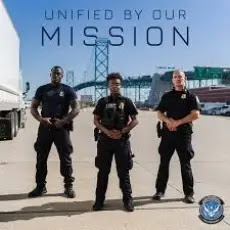The Cost of Rejection: Indians Lose ₹664 Crore to Visa Rejections in 2024
In a shocking revelation, a recent report has exposed the staggering cost of visa rejections for Indian travelers. In 2024 alone, Indians lost a whopping ₹664 crore (approximately $77 million) due to visa rejections. This alarming trend has sparked concerns about the arbitrary and exclusionary nature of modern visa regimes.
The report highlights that certain countries are more prone to rejecting Indian visa applications. New Zealand tops the list, with a rejection rate of 33 out of every 100 applications, followed closely by Australia, which rejects 30 out of every 100 applications. The United Kingdom and the Schengen Area also feature prominently on the list, with rejection rates of 17% and 16%, respectively.
The United Arab Emirates (UAE), a popular travel destination for Indians, has also seen a significant spike in visa rejections. The rejection rate, which was previously around 1%, has increased to 6% in recent times. This development has left many Indian travelers frustrated and disappointed.
The reasons behind these visa rejections are multifaceted. The post-pandemic travel boom has led to an increase in visa applications, which has, in turn, resulted in stricter visa policies. Anti-immigration sentiments and anti-tourist sentiments have also contributed to the rise in visa rejections.
Complicated visa procedures and documentation requirements have added to the woes of Indian travelers. The Schengen Visa, for instance, requires a voluminous folder of documents, which can be daunting for many applicants. The average wait time for a US Visa appointment is a staggering 250 days, which can be frustrating for those seeking to travel to the United States.
The Indian passport, which ranks 85th on the Henley Passport Index, also plays a significant role in determining visa restrictions. The index ranks passports based on the number of visa-free travel destinations they offer. India's low ranking means that Indian citizens face stricter visa requirements and longer wait times.
To address this issue, experts suggest that India could leverage its economic leverage to negotiate better mobility and access for its citizens. Aligning visa requirements with Western policies could also help highlight the importance of equitable practices and foster mutual respect.
In conclusion, the cost of visa rejections for Indian travelers is not just financial; it's also about deferred dreams and lost opportunities. As India continues to rise on the global stage, it's essential to address the issue of visa rejections and work towards creating a more equitable and accessible travel environment.
Other Stories:
- India's Passport Ranking: What Does it Mean for Indian Travelers?
- The Rise of Anti-Immigration Sentiments: How Will it Affect Indian Travelers?
- Visa Reforms: What Can India Do to Improve Mobility for its Citizens?

.webp)
.webp)


Comments
Post a Comment